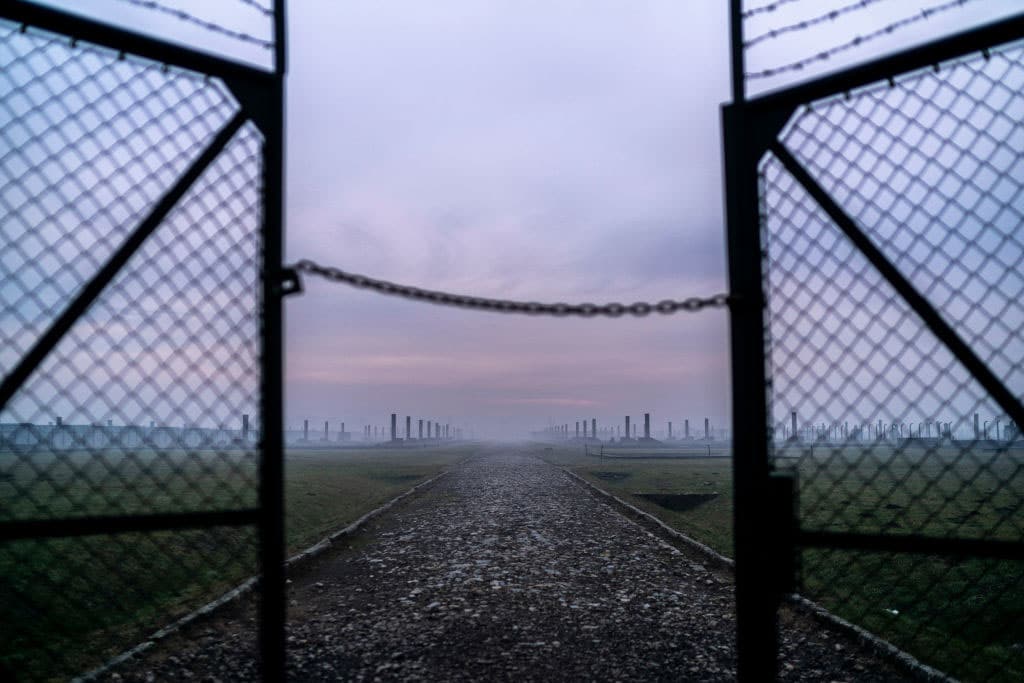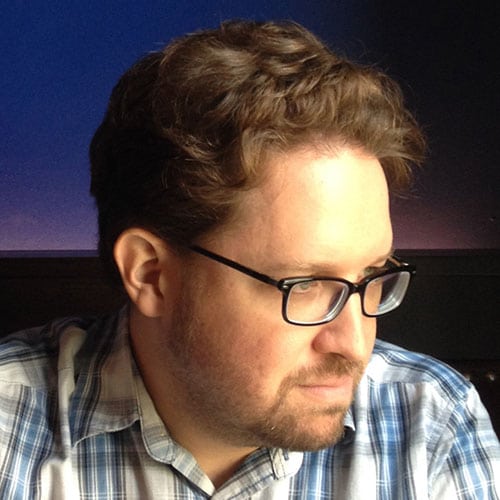 Oswiecim, Poland. (Photo by Christopher Furlong/Getty Images)
Oswiecim, Poland. (Photo by Christopher Furlong/Getty Images) A ploughed field abutted the barbed wire
and the ploughed field outlasted the barbed wire
and the plougher of the field survived to keep ploughing his field
and every now and then says what he saw
A muddy road and a forest
a castle a church a van a pit a camp
the bricks of the buildings still there
the same river and tracks the same ramp
That we can enter the perimeter
that devoured them all
the square feet where it happened and it doesn’t matter
kids pass through to get to school
the synagogue is now a warehouse
A man in a wagon in the distance
he is all belly and sweat and sunburn
and from his carefree mouth he’ll tell you about it
he might laugh and say the Jews ran Poland
he might say their women were gorgeous
or how he saw the trainloads go by
and where they went was silent the next day
The signs are still there
the letters that spell the names
Chełmno – Birkenau – others
no need to change them
and the plain faces of the locals
machinists, old women, the retired
the wrinkled, pious, cheerful, rude
still go to the church where the Jews were kept
before they were herded and gassed
and they remember and think it was awful
but they stayed and never moved away
That is what history is
that it happens where people are only half paying attention
that an old woman who wakes to make coffee
has the memory of these things in her head
and still makes coffee and enjoys drinking it
who saw history more clearly than the perpetrators
who saw it walk by on the road
but it happened between one thing and another and didn’t involve her
Tim Miller‘s poetry and essays have appeared in Parabola, The Wisdom Daily, Jewish Literary Journal, Crannog, Southword, Londongrip, Poethead, and others across the US and UK. Two recent books include Bone Antler Stone (poetry, The High Window Press) and the long narrative poem To the House of the Sun (S4N Books).























 More news and opinions than at a Shabbat dinner, right in your inbox.
More news and opinions than at a Shabbat dinner, right in your inbox.